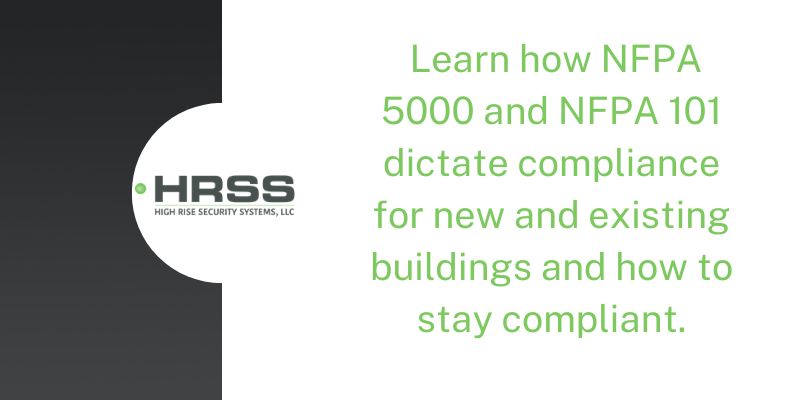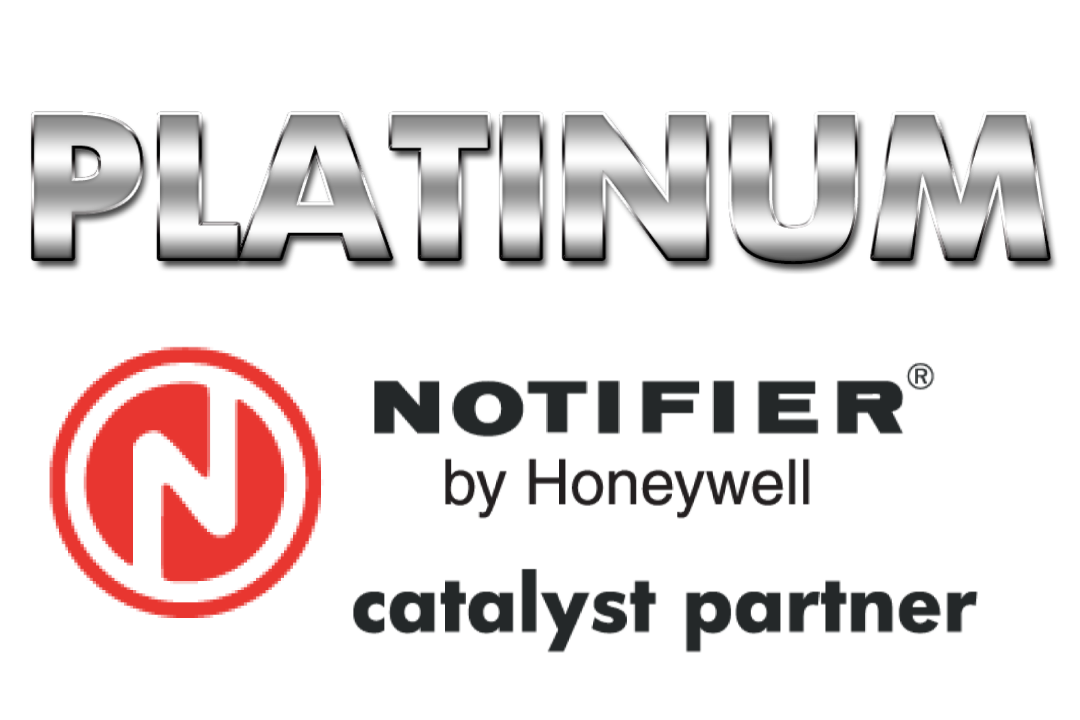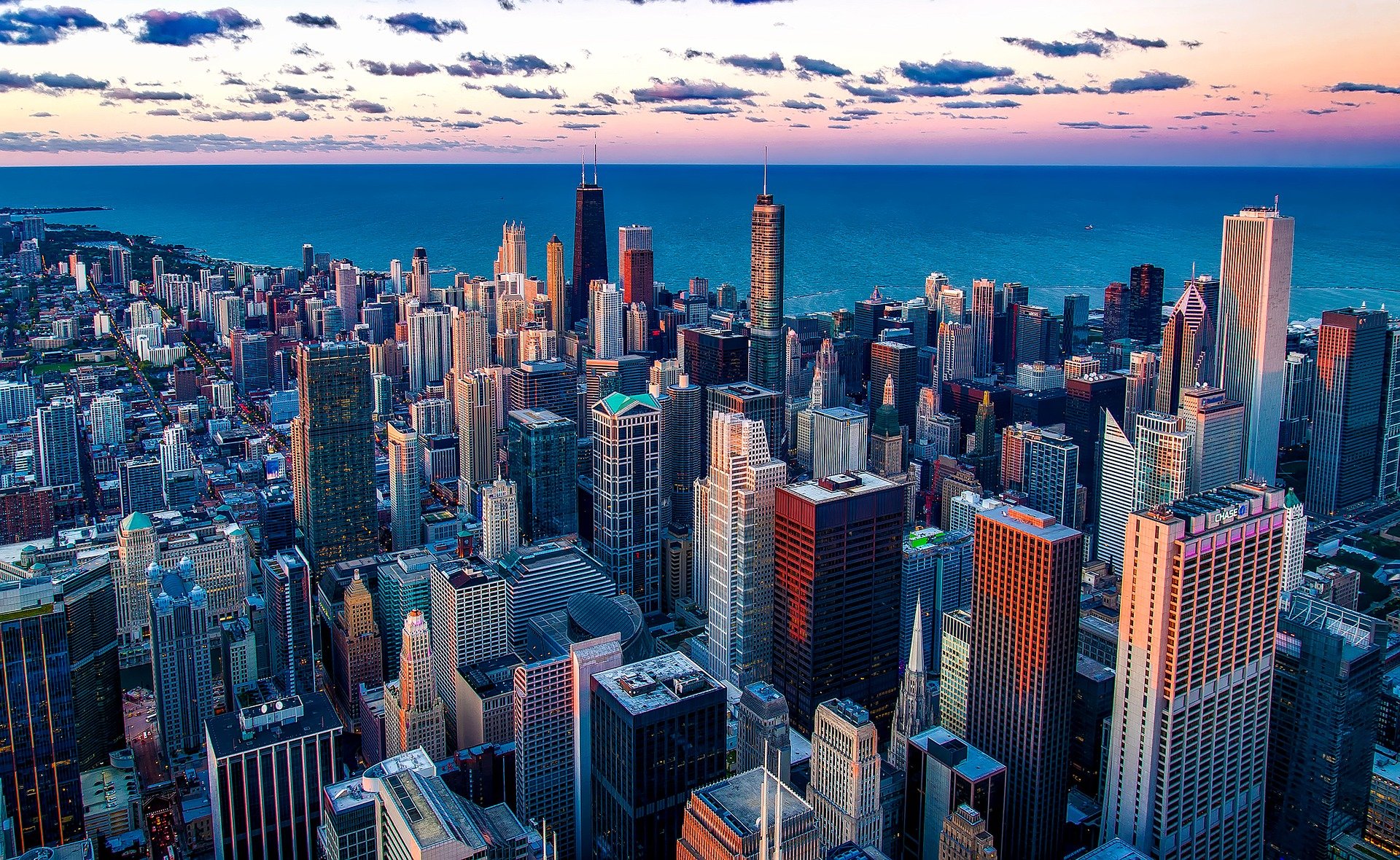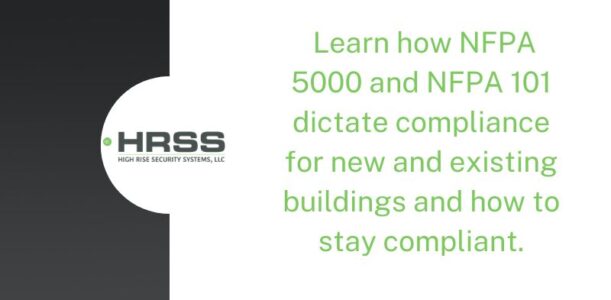
Get A Quote
New Building Construction Must Adhere to Current Codes
During the construction of new buildings, it is critical that building owners, contractors, engineers, and architects follow the most recent fire and safety codes and standards to provide at least the current minimum level of safety requirements. Jurisdictions adopt consensus codes and standards which establish the minimum level of safety requirements for building construction.
What Code Requirements Apply to Existing Buildings?
Determining the codes and standards that apply to existing buildings is often more complex and depends on the local codes currently in place and additional factors such as the purpose of the building or the type of occupancy. Two standards issued by the National Fire Protection Association, NFPA, shed some light on this topic, although they can be confusing for some building owners. It is beneficial to speak with an experienced commercial fire safety consultant to know exactly which codes apply to your new or existing building.
Both NFPA 5000 and NFPA 101 define an existing building as “A building erected or officially authorized prior to the effective date of the adoption of this edition of the Code by the agency or jurisdiction”, although these two codes treat that definition differently.
NFPA 5000 and NFPA 101
NFPA 5000, Building Construction and Safety Code® – this standard does not apply to existing buildings unless they undergo some level of building rehabilitation, an addition, if the building is damaged or relocated, or if it undergoes a change in use. NFPA 5000 focuses more on the construction and design of new buildings.
According to NFPA 5000, buildings that have “been officially authorized”, which means that they were designed and permitted according to previous editions of the code, can remain in their original state. Once they undergo any of the changes above, they are required to comply with the most recent version.
For example, NFPA 5000 includes a requirement for newly constructed one- and two-bedroom family dwellings to include an automatic sprinkler system for fire protection. This requirement was first stated in the 2006 edition and remains in the most recent 2021 edition. Therefore, where NFPA 5000 is adopted, any homes that have “been officially authorized” prior to the 2006 adoption would not require a retrofit to add automatic sprinkler systems.
NFPA 101, Life Safety Code – does not contain that same clause regarding building rehabilitations and applies to both new and existing buildings. NFPA 101 focuses more on safety during the entire building’s lifecycle instead of the initial design and construction.
The concept, or definition of “officially authorized,” is one reason that fires with significant injuries and deaths continue to occur. It is not a case where the current fire safety codes are not enough, it is the fact that most buildings in the United States and other countries were constructed to meet what was deemed as the minimal level of safety required at the time. This minimal level of safety continues to evolve, although if all building owners were required to make building improvements to retroactively meet current standards and codes, it would pose a significant and costly hardship on building owners.
When the Risk of Not Updating Outweighs the Cost
In some cases, the risk of not updating your building to current code requirements far outweighs the cost, and updates should be made. In jurisdictions where NFPA 101, 2021 edition has been adopted, nursing homes are required to have an automatic fire sprinkler system in both new and existing buildings, mostly without exception. The process of code development concluded that the risk is far too great for occupants in these types of facilities and that an automatic sprinkler system is now required to meet a minimum level of safety in both new and existing buildings.
If you have questions about code and standard requirements for your new or existing building, be sure to contact High-Rise Security Systems in IL.
High Rise Security Systems, HRSS, with SMG Security Holdings, SMG is a leading fire and life safety system provider to all types of commercial properties in and around Chicago. We offer fire safety consulting services, including helping businesses meet all code and standard requirements. Contact us with any questions and to make sure that your new or existing property is fully protected and code compliant.



